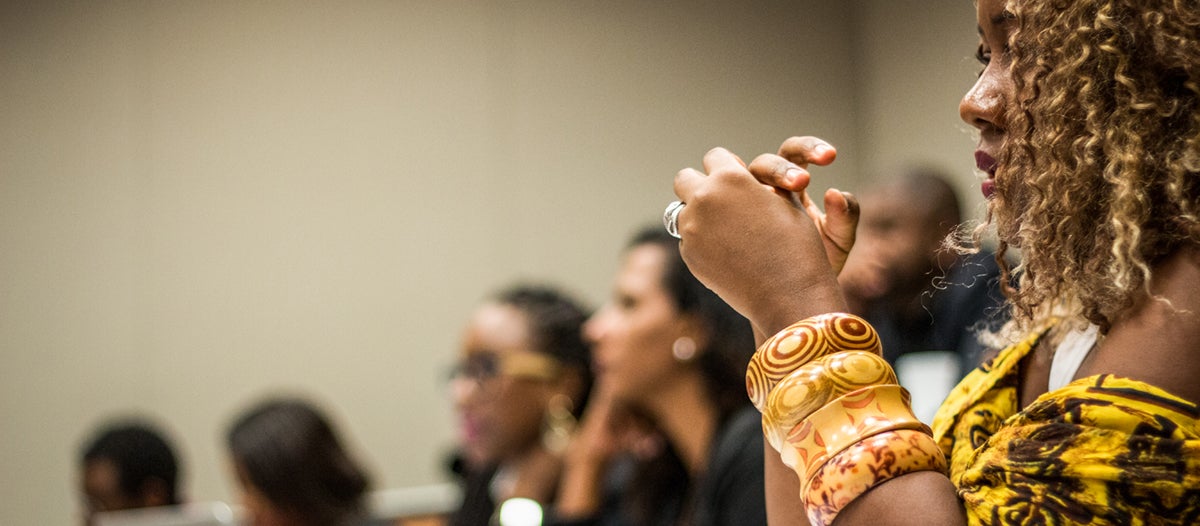By Eugene Cornelius*
The U.S. Small Business Administration provides entrepreneurial counseling, contracting opportunities and capital to support small and medium sized businesses (SMEs) at every stage of business development. Following the financial crisis of 2007-08 and the subsequent Great Recession, budgets were constrained, unemployment was high, and jobs were scarce.
Amid crisis, however, people continued to start, grow, and innovative businesses. In fact, from mid-2009 to 2011, small firms accounted for 67 percent of the net new jobs in the U.S. Entrepreneurial ecosystems were the impetus fueling the economic recovery, which led to economic relief, and social improvements for many communities.
The success of the U.S. entrepreneurial system is not the result of one group or government policy decision, but it is the culmination of eliminating barriers among otherwise separate groups – to include, government, civil society, and business – and building “bridges” to foster interconnectedness and interdependence. The recession forced people to collaborate and most importantly, have difficult conversations about the necessity of adapting to an increasingly diverse society where inclusion is celebrated. What we have learned, and, often find ourselves re-learning, is that what makes the United States great is our diversity: Diversity of thought, color, race, religion, occupation, gender…all of which are powerful for advancing the bottom-line by identifying new markets and innovations.
The Inter-American Development Bank (IDB) is elevating the impact of Afro-Brazilian entrepreneurs on the Brazilian economy while also being proactive in piloting initiatives that will create sustainable entrepreneurial pipelines. These pipelines are a unique opportunity for SME education, development, growth, and success. See what impact IDB is making: HERE. During a recent trip to São Paulo, I participated in an event organized by InovaCapital, an accelerator created by the IDB, to discuss Afro-Brazilian entrepreneurship and the challenges and opportunities that exist within the current business ecosystem. These conversations are critical to promoting inclusive societies that grow the bottom-line. While in Brazil, I was reminded of the potential of informal vendors – those I met in Salvador, Bahia and the entrepreneurial spirit of the businessmen and women who joined us in São Paulo. These Afro-Brazilian entrepreneurs are exceptional representatives for the social and economic benefits of diversity in business. They reminded me of the many examples of success that we at the SBA helped to develop, support, and incubate during the U.S. financial crisis.
Leveraging what makes us unique is the pathway to impact and equality. Constrained financial environments are opportunities for collaboration, celebration of diversity and inclusion, and economic growth. While all is possible, change does not begin without a conversation. So, let’s keep this one going!
Mr. Cornelius is the Deputy Associate Administrator (DAA) for the Office of International Trade at the U.S. Small Business Administration (SBA) where he is responsible for the oversight and execution of SBA’s international program divisions. Prior to this role, Mr. Cornelius was the DAA for the Office of Field Operations where he provided senior leadership to over 42 percent of the Agency’s budgeted workforce – to include 90 offices covering all 50 States, Puerto Rico, U.S. Virgin Islands, Guam, and U. S. Territories – while ensuring the implementation of Agency goals, programs, and operations. Before joining SBA, Mr. Cornelius was the Director of Business Services for the Los Angeles Community College District in California. Mr. Cornelius holds a Bachelor’s degree in Business Administration and a Master’s degree in Public Administration.
Cornelius is the Deputy Associate Administrator (DAA) for the Office of International Trade at the U.S. Small Business Administration (SBA) where he is responsible for the oversight and execution of SBA’s international program divisions. Prior to this role, Mr. Cornelius was the DAA for the Office of Field Operations where he provided senior leadership to over 42 percent of the Agency’s budgeted workforce – to include 90 offices covering all 50 States, Puerto Rico, U.S. Virgin Islands, Guam, and U. S. Territories – while ensuring the implementation of Agency goals, programs, and operations. Before joining SBA, Mr. Cornelius was the Director of Business Services for the Los Angeles Community College District in California. Mr. Cornelius holds a Bachelor’s degree in Business Administration and a Master’s degree in Public Administration.


En el actual contexto de contracción del crecimiento económico provocad por la crisis económica mundial, vale la pena volver a los principios fundamentales y recordar cuáles son las fuerzas motrices del crecimiento económico.